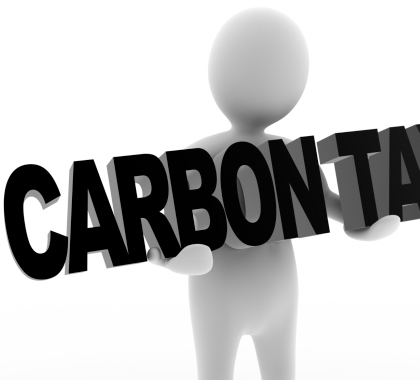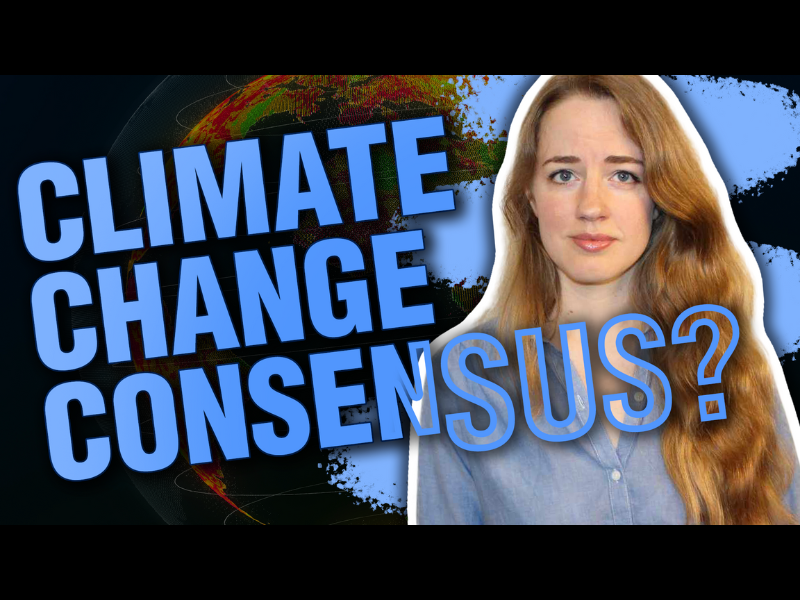The U.S. House of Representatives passed a resolution introduced by House Majority Whip Steve Scalise (R–LA) and Rep. David B. McKinley (R–WV) “expressing the sense of Congress that a carbon tax would be detrimental to the United States economy,” by vote of 229 to 180.
A similar resolution introduced by Scalise in 2016 passed the House by a vote of 237 to 163. Six Democrats joined the entire Republican caucus in supporting that legislation. On July 19, when the current anti-carbon tax resolution was adopted, seven Republicans joined the overwhelming majority of Democrats in opposing the bill, with seven Democrats supporting the resolution.
The resolution states any carbon tax would result in numerous harms, including an “increase [in] energy prices, including the price of gasoline, electricity, natural gas, and home heating oil.” A carbon-dioxide tax would also “mean that families and consumers will pay more for essentials like food, gasoline, and electricity,” causing the most harm to “the poor, the elderly, and those on fixed incomes,” the resolution states. A carbon-dioxide tax would “lead to more jobs and businesses moving overseas,” the legislation states.
‘The Last Thing We Need’
Scalise says his resolution is meant to assist Republicans’ plan to make America energy-dominant again.
“Working with President [Donald] Trump, this Congress is leading America toward energy dominance and strong economic growth, yet some liberal Washington special interests continue to pursue a radical agenda that includes imposing a job-killing carbon tax, which would raise costs on everything we buy, from electricity and gasoline to food and everyday household products,” said Scalise in a press statement released upon offering the resolution. “I applaud President Trump for reversing eight years of failed energy policy and finally putting America on a strong path to energy dominance and economic security for all Americans.”
A carbon tax would increase unemployment and hurt American businesses, says McKinley.
“At a time when America has finally turned the corner and our economy is growing, the last thing we need is a tax that will take money out of the pockets of middle-class families,” McKinley said in the press release. “A carbon tax would lead to a decrease in the production of America’s abundant energy resources that would result in lost jobs, a weakening of American competitiveness globally, and a significant increase in energy costs for middle- and low-income families.”
Anti-Carbon-Tax Coalition
Ten days before the vote, a group of 21 research institutes, legal foundations, and grassroots-activist groups, including The Heartland Institute, which publishes Environment & Climate News, submitted a letter to Congress expressing support for the resolution.
“A carbon tax is a policy with one definable goal, to raise the cost of traditional, reliable, affordable sources of energy,” the coalition letter states. “This includes domestically produced gasoline, diesel, coal, and natural gas that fuel our cars and trucks, power our homes, and keep our economy going strong every day.
“[A] $40 per ton carbon tax would increase the price consumers pay at the pump by about 38 cents per gallon,” the letter continues. “And a study commissioned by the National Association of Manufacturers found that a carbon tax could destroy anywhere from nearly 4 million to more than 20 million American jobs.”
On the Record
After the vote, Tim Huelskamp, Ph.D., president of The Heartland Institute, said it is good to know which members of Congress support harmful energy taxes.
“A tax on carbon dioxide is a horrible idea, a job killer that would devastate the tremendous growth and prosperity generated by President Trump’s energy policies,” said Huelskamp. “It is useful, however, to have a vote on a tax on carbon dioxide every few years so the American people can more easily identify those in Washington, both in Congress and beyond, who support this massive tax increase.”
A carbon tax would reverse Trump’s efforts to grow the economy, says Joseph Bast, a board member and senior fellow of The Heartland Institute.
“One of President Trump’s biggest achievements has been to end his predecessor’s war on fossil fuels,” Bast said. “Why, then, would Republicans in Congress seek to undo this achievement by adopting an unnecessary and economically destructive carbon tax? The very idea is absurd.”
H. Sterling Burnett, Ph.D. ([email protected]) is a research fellow at The Heartland Institute.
INTERNET INFO
Rep. Steve Scalise (R–LA) and Rep. David McKinley (R–WV), “H. CON. RES. 119
Expressing the sense of Congress that a carbon tax would be detrimental to the United States economy,” April 26, 2018: https://heartland.org/publications-resources/publications/hconres119—expressing-the-sense-of-congress-that-a-carbon-tax-would-be-detrimental-to-the-united-states-economy
Official Connections:
Rep. Steve Scalise (R–LA): https://scalise.house.gov/; https://scaliseforms.house.gov/contact/
Rep. David McKinley (R–WV): https://mckinley.house.gov/; https://mckinley.house.gov/contact/





